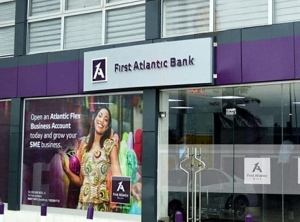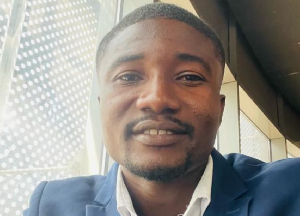For the past two years, the Democratic Republic of Congo has been grappling with the world's worst outbreak of measles, which has killed more than 7,000 children. The minister of health says the outbreak is over but experts say that with a relatively low rate of vaccination - just 60% - it is just a matter of time before there is another. Journalist Sara Assarsson and photographer Johannes Tegner meet the health workers going to great lengths delivering these vital but delicate supplies:
Though you would not know it from his spotless shoes, Mulalu Lwesso often walks for up to six hours delivering vaccines to a rural health facility.
"I started studying nursing but couldn't afford to complete my education - now I help out where it's needed. It's a long walk and I'm getting old. I've walked this route every month since 1987," he says.
The 62-year-old makes the same journey from a hospital in the town of Mwenga - wiping his forehead, slinging the coolbox over his shoulder and heading back to his home village with vaccine capsules, syringes and other supplies in tow.
Other methods of transport can pose challenges. Lorries can get stranded for days, even weeks, when heavy rains turn dirt roads into muddy fields. DR Congo, a country two-thirds the size of Western Europe, has just over 2,000km (1,250 miles) of paved roads.
Vaccines are heat-sensitive and become less efficient if exposed to high temperatures.
Manufactured in India and flown into eastern DR Congo's economic hub, Goma, these measles vaccines are then transported by boat to a cold storage room at Bukavu General Hospital.
"It should be between 6C and 7C in here, but we only have electricity during certain hours of the day," says Oscar Mutama, who is in charge of vaccine distribution for the wider South Kivu province.
"In the event of a prolonged power outage, we cannot guarantee the vaccines maintain the highest quality. We have recently introduced new routines for registering damaged products, but we don't have the capacity to perform thorough quality controls."
At the next stage of the journey the petrol money has run out, leaving Mr Lwesso to take the cool bag the final 30km (18 miles) by foot - the team having already decided that a motorcycle taxi would be too costly.
DR Congo's crippled health system survives on threadbare resources, and the eastern region is beset by armed conflict as well as humanitarian crises, and poverty is many people's daily reality.
With the batches now delivered, nine-month-old Zawidi is to receive her first vaccine.
All her siblings have been immunised against polio, measles, tetanus, diphtheria and mumps.
Yet one of them contracted measles during the country's latest outbreak. "He didn't become seriously ill, but I was still worried about him," says their mother Tantine Katangalo.
She sets off with Zaiwidi, walking for nearly two hours to reach the health centre. With people "scattered in the hills" and having "few transport options", the vast distances parents have to travel make it quite an effort, says Mwenga's head of medicine Arsène Mubuto.
Armed militias have forced tens of thousands of people to flee their homes here over the years.
"We call them conflict commuters," says Dr Mubuto. "When there is unrest in an area, people move to a neighbouring village and then move back home."
Despite these circumstances, however, he says much has already been achieved locally: "When we discovered measles in 2019, we acted quickly and mass vaccinated everyone. It seems to have succeeded."
Africa News of Tuesday, 6 October 2020
Source: bbc.com













